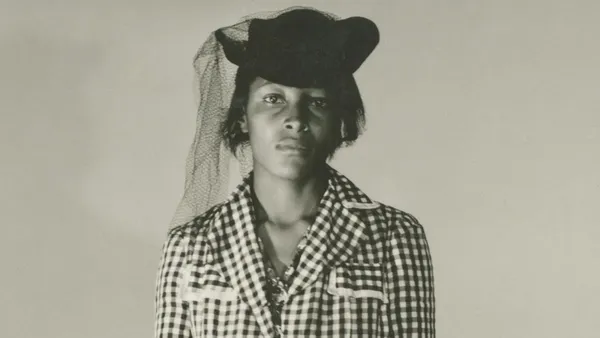Eye For Film >> Movies >> The Rape Of Recy Taylor (2017) Film Review
The Rape Of Recy Taylor
Reviewed by: Jennie Kermode

Recy Taylor was a quiet woman, a committed Christian, married with a daughter and resident in the small Alabama town of Abbeville in 1944. Although society's attitude to the colour of her skin meant she was never likely to have good opportunities in life, she might have lived in quiet contentment throughout her life, were it not for what happened to her on the night of the third of September of that year. Walking back home from church along streets generally considered to be safe, she was abducted by six white men who raped and abused her so severely that she barely survived and was never able to have another child. But this wasn't just another addition to the lengthy list of such incidents in American history. Recy's experience and the courage with which she spoke up about it signalled a tipping point. It would have a significant effect on the shape of the developing civil rights movement.
Responding to the attack, Recy did everything by the book. She reported it to the police. She provided a detailed account of what happened and described the perpetrators. Her manifest injuries made it clear that something violent had happened to her, and in fact no attempt was made to deny that the rape had happened. But could a black woman living under Jim Crow laws really expect justice when accusing popular young white men and placing their promising futures in jeopardy?

Despite plentiful records pertaining to the case, little visual material survives, so Nancy Buirski has used a variety of methods to keep the film visually interesting, including footage from the race films of the period. Made for black audiences, these films make an interesting counterpart to the melodramas made for the white population at the same time, in that the extreme situations they depict are more deeply rooted in reality. Numerous studies have shown that the rape of black women was endemic in the period and almost considered as a right of passage for white men, perhaps a consequence of their failure to consider black people as fully human. Like the heroines of these films, ordinary black women knew that they could be attacked at any time, with a not insignificant chance of being murdered, and that they were vanishingly unlikely ever to see justice. The films set the tone very effectively as, on more familiar documentary territory, a local white, male historian expresses his sympathy for Recy but suggests things couldn't really have been as bad as they seemed.
As many of those wielding power in such regimes have ultimately learned, the trouble with keeping people in such an intense climate of fear is that they may eventually decide they have little to lose. Far more than just the story of one injustice, this film examines the way that black women drove forward the civil rights movement with their very survival on the line. With women's contributions routinely overlooked in both documentaries and dramas on the subject, it is a film of vital importance.
The figure whom viewers are likely to be most familiar with here is Rosa Parks, who, long before reusing to sit at the back of a bus, travelled to Abbeville to support Recy and demand that she receive justice. Manhandled and imprisoned for her trouble, she proceeded to tell Recy's story to the press in other parts of the country, eventually helping it to spread internationally and shaming the Abbeville authorities. The movement that emerged from this would go on to support other women in similar positions.
But what of Recy? It's all most of us could do to survive such an assault, let alone to cope with the publicity that followed and the political attention turned to what was really a very simple request. Buirski's film reveals its quality in staying with Recy to tell the story of what happened to her after all the fuss subsided. In doing so it gets past all the outrage and reminds us that this is a story about a real woman's life, about the impact on her and her family across the years that followed. We see the big picture but Buirski never allows us to forget that individuals matter. This also helps to bring into focus the ongoing impact of racism and the compound injustices it creates.
An intelligent, incisive documentary that illustrates how events in that small town in 1944 still matter today, The Rape Of Recy Taylor deserves a wide audience.
Reviewed on: 06 Dec 2017

















